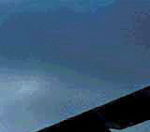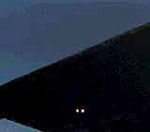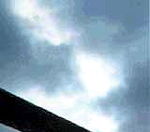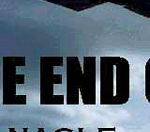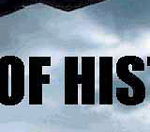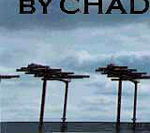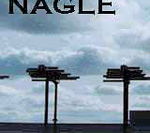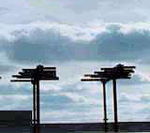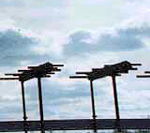|
How
the War Party Put Iraq on the Side of the Angels
Remember
always, the principles and experiences which are special to
you are the only ones that represent final truth and which
are able to respond to the task of building the new society
for the Arab nation.
~
Saddam Hussein, Speech to Arab Baath Socialist Party (1979)
Sen.
Hiram Johnson's 1917 quotation about war "The first
casualty, when war comes, is the truth" seems almost optimistic
now. War on Iraq hasn't even started yet, and it already feels
as if the truth was snuffed out long ago. As a recent cartoon
by Tom
Tomorrow in Salon superbly illustrates, the War Party's
constantly morphing, maddening, spinning argument relies largely
on the old assertion that Saddam Hussein "gassed his own
people." The logic goes: Saddam Hussein is a bloody tyrant
who gassed Kurds, so why not get rid of him? It's an appeal
to mass-scale American empathy that in countering concerns about
whether Iraq is a real threat to the US poses the question:
"What do you care, John Q, if we go ahead and take out this
bad guy?" But in light of the ridiculous comparisons between
Saddam and Hitler, between alleged Kurd-gassing in the 1980s and
the Nazi "Final Solution," or any of the other War Party
lies, maybe it's time to try to answer the question: just how
bad is this Iraqi bad guy?
FROM
THE HORSE'S MOUTH
Arguing
that Baath Socialist Iraq is no Nazi Germany by appealing to memory
and scholarship will get you nowhere with most members of the
War Party. At least there's an air of honesty about President
Bush's ridiculous Hitler references, since our head of state appears
to have never read a book at all. But many war proponents who
know better rely on the general illiteracy of a public that reads
little apart from newspaper articles and columns. I know a few
educated and perceptive people who have visited Iraq in the last
few years and did not perceive a reign of terror or mass fear
among the inhabitants. Of course, the war drum-bangers might accuse
such first-hand witnesses of being latter-day George Bernard Shaws
(assuming they have ever heard of the writer), so it's far better
instead to cite a prominent member of the opposition Iraqi National
Congress (INC) as proof that, whatever horrors may lie in the
history of Baath Socialist Iraq, the country today is reasonably
peaceful apart from areas where it is daily bombed by American
and British planes.
In
1986, INC member Kanan Makiya published a book about Iraq called
Republic
of Fear, and in 1998 another edition of the book came
out with an introduction covering developments over the twelve
years subsequent to 1986. Makiya paints a picture of a country
that went through a bloody ordeal beginning almost forty years
ago and ending some time in the late 1980s. In 1963, the Arab
Baath Socialist Party (ABSP) took power in Iraq and began settling
scores with Communists and other enemies before its ouster nine
months later. Arab defeat in the 1967 Arab-Israeli War gave the
Iraqi Baathists new impetus, and after the Baathist coup in July
1968 toppled a military dictatorship, ordinary Iraqis responded
with widespread enthusiasm to the anti-Zionist Baath ideology.
According to Makiya, the Iraqi public "entered this new world
of experiences with great gusto."
What
sort of ideology is Baath Socialism? Although it stresses duty
to the nation and society, Baathism is tinged with a peculiar
Arab individualism, in contrast to the anti-national collectivism
of Communism and left Socialism. Baathism, says Makiya, is an
ideology of conscious, Arab-centric myth-making that requires
each individual Arab to cultivate "an 'external wall' to
ward off bad influences that
[come] from outside.'"
Ba'thist
ideology, which can hardly be pinned down to a real social
class in the absence of a singular Arab society, is about
fabricating a parochial world view made up exclusively of
social myths
culled from Arab and Islamic tradition, and
organized intellectually with the help of a host of concepts
borrowed from the Left. Arab unity, freedom, Arab socialism,
and the struggle against imperialism and Zionism are some
of the catchwords of the mythology. The combination of myths
and organizing concepts like imperialism acts as a filter
in relation to the outside and provides a model not for what
Arab society is, or what it might realistically change into,
but what it is willed into becoming
The important thing about
this ideological production is not the ideas themselves, or
their correspondence to social reality, but the initiative
taken in making them real.
According
to Makiya, the reification of Baathist ideology caused Iraqi "civil
society" to cave in on itself, plunging into an orgy of bloodletting
and fear for the next ten years. With the benefit of hindsight,
the book makes the nightmare look like the ideology's end in itself,
a deliberate culmination of a period of Arab frustration and hatred
from defeat at the hands of Israel, and an image frightening enough
to serve as a "warning" to outsiders and enemies of
the Arab nation, especially Zionists. Whether or not this was
the intention, Baathism had that effect.
On
December 5, 1968, a day after Israel hit Iraq with an air strike
that killed sixteen and wounded thirty, 40,000 people accompanied
Iraqi soldiers' coffins from Liberation Square to the Presidential
Palace. In January 1969, writes Makiya, the Baathist Iraqi government
held public hangings of traitors and conspirators in Liberation
Square in Baghdad:
Estimates
of the size of the crowds that came to view the dangling corpses
spread seventy meters apart in Liberation Square increasing
the area of sensual contact between mutilated body and mass
vary from 150,000 to 500,000. Peasants streamed in from
the surrounding countryside to hear the speeches. The proceedings,
along with the bodies, continued for twenty-four hours, during
which the president, Ahmad Hasan al-Bakr [Saddam's predecessor],
and a host of other luminaries gave speeches and orchestrated
the carnival-like atmosphere.
Poring
through Republic of Fear, it's easy to get carried away
thinking about the "evil" in Iraq that should be destroyed
for the sake of humanity. But the book doesn't leave the reader
with a strong sense either that present-day Iraq poses a direct
threat to America, or that the chronicle of horrors is more than
a receding memory among today's Iraqi masses. Furthermore, the
victims of Iraq's Baath Socialist "Revolution" of the
late 1960s never approached anything on the scale of the revolutions
in Russia or China, both of which America had very cordial relations
in the twentieth century.
In
1933, the United States extended full recognition to the Soviet
Union at a time when millions of people were at that moment
dropping dead from state-imposed famine, and in years to come
hundreds of thousands were hauled into secret police cells to
take a bullet in the back of the neck. There has never been mass
outrage in America over that, or the forging of an alliance with
the USSR in WWII, or the establishment of détente in
the late-sixties' and early-seventies'. The argument that, "Well,
America has learned more since then and now we need to do the
right thing," doesn't square with Iraq's internal political
reality today. Republic of Fear was originally published
in 1986 two years before the end of the Iran-Iraq war, when
the US strongly supported Saddam and the 1998 edition's introduction
says that it:
describes a state system that no longer exists in post-Gulf
War Iraq. The war, the uprising that followed on its heels,
and seven terrible years of sanctions and economic privation
have seen to that. Nothing in Iraq today is as it was in the
heyday of the regime's absolutism, which reached its apogee
in the late 1970s, the key period encapsulated in the book's
title
[Saddam is] a tin-pot dictator by Western standards
(in comparison with Stalin or Hitler)
In
other words, by an INC member's own admission, the period of the
worst excesses of Baathist terror is long over. Whatever Saddam
may be, he is hardly a global menace or even someone from whom
the US needs to rescue ordinary Iraqis. The Washington Post's
description of Saddam Hussein at the time of the Gulf War as "a
villain from Hollywood central casting" still seems closer
to the mark than any of the latest demonizations by the War Party
hacks. Although an admirer of Stalin, Saddam resembles the old
Soviet dictator primarily by his origins as a peasant from a small
town, Tikrit (Stalin hailed from provincial Gori in Georgia),
his past penchant for show-trials and purges, and his bushy mustache.
He hardly resembles Hitler at all. Unlike Hitler, Saddam is no
ex-rank-and-file soldier with a talent for military strategy,
and his "blitzkriegs" haven't managed to secure
control even over other territories, never mind an entire continent.
PORTRAIT
OF A LEADER
What
is Saddam's story? This particular dictator has somehow managed
to become the subject of innumerable lurid and prurient books
and articles, with the authors drooling over the supposedly unprecedented
cruelty and tyranny of his tenure as leader. But how justified
is this picture?
Saddam
was born in 1937 in the village of Al Awja, near Tikrit, and was
illiterate until age ten. According to Said Aburish, author of
Saddam
Hussein: The Politics of Revenge, Saddam "heard that
his cousin could read and write and demanded that he be afforded
the same opportunity." Inspired by his uncle, a pan-Arabist
army officer, Saddam joined the ABSP and the world of underground
pan-Arabist activists at age 19. He was forced into exile in 1959
and earned a law degree from the University of Cairo in 1962.
Returning to Iraq in 1963, he was arrested and imprisoned after
the ABSP fell from power that year.
In
1968 the Baath came to power in a coup that overthrew the military
junta, and the next year Saddam became vice chairman of the Revolutionary
Command Council, the highest executive body in Iraq. According
to an article from the Online
NewsHour:
As
vice chairman, he oversaw the nationalization of the oil industry
and advocated a national infrastructure campaign that built
roads, schools and hospitals. The once illiterate Saddam ordered
a mandatory literacy program. Those who did not participate
risked three years in jail, but hundreds of thousands learned
to read. Iraq, at this time, created one of the best public-health
systems in the Middle East a feat that earned Saddam an
award from the United Nations Educational, Scientific and
Cultural Organization [UNESCO].
Saddam
Hussein consolidated his power through a police state. Yet, although
he built an impressive economic infrastructure from scratch, official
Western histories have characterized his rule primarily by acts
of arbitrary cruelty. According to an article in the Christian
Science Monitor, when Saddam assumed the presidency in
1979, he "had 21 senior officials of his Baath Party potential
rivals murdered en masse" a tactic reminiscent of Stalin's
purges. However, perhaps the most infamous story about Saddam
concerns his alleged shooting of a health minister during a cabinet
meeting. Descriptions of the circumstances surrounding this incident
vary widely, with some suggesting it was simply an arbitrary act
of madness. But the Christian Science Monitor explains the event
thus:
On
one celebrated occasion in 1982 [Saddam] interrupted a cabinet
meeting to step outside with his health minister, Reyadh Ibrahim
Hussain, who had overseen the purchase of a defective batch
of penicillin for the Army
The president shot the offending
minister dead in an anteroom, then returned to finish chairing
the cabinet session.
The
timid Westerner cringes at the thought of such "uncivil"
behavior, but Saddam's act while not very "nice"
sent a message: jeopardize the lives of my troops when angling
for kickbacks on imports and you will suffer the ultimate penalty.
The incident brings to mind the plot of the old Orson Welles movie,
The
Third Man, in which Harry
Lime the American spy who has disappeared into the darkened
alleyways of post-war Vienna profits from the buying and selling
of diluted penicillin in the war-torn city, causing the slow and
painful death of thousands of children. How does justice catch
up with Lime? With a bullet in the back from an old friend, a
fellow American.
Makiya
devotes the introduction to the 1998 version of Republic of
Fear to a discussion of a new manifestation of brutality in
Iraq after the Gulf War in the form of brandings, amputations
and other disfigurement as punishment for crimes such as theft
or desertion. "The world of the Iraqi Ba'th was Kafkaesque
in 1980, but by 1997 it had become even stranger," he writes.
But Makiya is reaching here. However gruesome such laws and punishments
may seem to Westerners, Iraq's tinkering with them pales beside
the plethora of US allies that have had them in place a long time.
Even
in the area of sponsoring international terrorism, in nearly 300
pages Makiya an INC member and clearly no apologist for Saddam
refers to Iraqi involvement in "international" terrorism
only once, and it has nothing to do with America:
After
[Saddam Hussein] threatened in February 1980 that "the
hand of the revolution can reach out to its enemies wherever
they are found," several opposition leaders were assassinated
in Beirut and at least one attempt was made in Paris. The
Estikhbarat [Iraqi military intelligence] assassinated
Abdul Razzaq al-Nayef in London
and provided training and
logistical support for the Iranian London embassy siege in
May 1980. Their involvement in the assassination of Palestinian
leaders by the Abu Nidhal group through 1980 is also likely.
When the Palestine Liberation Organization (PLO) tried to
return the favour to Abu Nidhal while he was undergoing medical
treatment in a London hospital in 1979, they could not get
at him because "the Iraqis had turned the hospital into
a fortress."
Iraq
taking sides in past internecine Arab hits between the PLO and
Abu Nidal shouldn't be something that raises any American eyebrows.
There is no allegation in the book that Saddam or the Iraqi regime
sponsored terrorist attacks against the US or any other Western
power, although the chronology at the end of the book mentions
the two chief conspirators in the February 23, 1993, bombing of
the World Trade Center in New York "carry[ing] Iraqi passports."
Even this should be irrelevant in assigning blame for international
terrorism, given that the 9/11 hijackers carried passports from
several countries whose governments haven't been accused of sponsorship.
Republic
of Fear leaves the reader with an impression of Iraq as a
country that went through a painful, bloody, and at times sick
nightmare over a couple of decades, but is neither a credible
threat to the West, if it ever was, nor an especially awe-inspiring
tyranny now. In fact, it is much more likely that at least in
the central areas of Iraq still under sovereign Iraqi control
some degree of stability and predictability characterizes ordinary
peoples' lives. Makiya has thrown himself in with Ahmed
Chalabi and the INC's "silk-suited, Rolex-wearing guys
in London," to quote US Marine Gen. Anthony Zinni, but that
only gives more credibility to his omissions about the nature
of the Iraqi regime today, because Makiya has no reason to pull
any punches. Why does Makiya want the US to invade and remove
Saddam? Because Makiya is a believer in "universal norms"
and the United Nations' ability to solve problems and make everyone
get along. But there is nothing about the moral arguments he makes
that is wildly compelling by way of justifying a US invasion of
a sovereign state. In other words, the primary achievement of
another American bombing campaign and invasion would be, as usual,
to destabilize and ruin yet another region of the world.
THE
ZIONIST AGENDA
Whatever
the flaws in Republic of Fear as a treatise, it is at least
well written prose. Another book about Saddam Hussein, Study
of Revenge Saddam Hussein's Unfinished War against America,
by Laurie Mylroie, reads like a dry, dull and annoying dissertation
on behalf of an Israeli geo-political plan. The book doesn't actually
admit that it's an arrow in the quiver of Richard Perle and the
Israeli lobby, but it doesn't have to. Published in 2000 by the
American Enterprise Institute (AEI), the book features glowing
mini-reviews on the back cover from former CIA Director James
Woolsey, Richard Perle, and Deputy Secretary of Defense Paul Wolfowitz,
the main leaders of the anti-Iraq charge outside the cabinet and
US national security council. Listed at the back of the book among
the Board of Trustees of AEI are Halliburton Vice Chairman Dick
Cheney, Enron CEO Kenneth Lay, and Alcoa Chairman Paul O'Neill
(now Treasury Secretary). Among AEI's Officers is Senior Vice
President John
Bolton (now Undersecretary of State for Arms Control and International
Security Affairs). Wolfowitz is listed as a member of AEI's Council
of Academic Advisers, and the Research Staff includes "Freedom
Scholar" Michael
Ledeen and Perle himself.
The
book can't prove its central thesis that Saddam Hussein was
behind the 1993 World Trade Center bombing because he wanted revenge
for his defeat in the 1991 Gulf War. So it relies on the idea
that it "makes sense." After all, wouldn't you
want to "get America" if you'd suffered such a crushing
defeat in war? It's an eye for an eye, and all good Americans
believe in an eye for an eye, don't they? Mylroie quotes Milton's
Paradise
Lost (from which the book's title is taken) at both the
beginning and the end to analogize Saddam
Hussein and Satan:
What
though the field be lost?
All
is not lost; th'unconquerable Will,
And
study of revenge, immortal hate,
And
courage never to submit or yield;
And
what is else not to be overcome?
Satan
himself, nursing "immortal hate"! If Saddam ever saw
this book he could only have felt flattered. But the book isn't
ultimately convincing. Here is a quote from the introduction:
This
book is an invitation to meticulously examine the evidence,
to do the job that Washington should have done. In the process,
we will catch the FBI in the "mistake of the century,"
as one distinguished former US ambassador to the Middle East
described it
We will discover that the World Trade Center
bombing did indeed have state sponsorship from Iraq. We
will understand that Saddam Hussein is the single greatest
terrorist threat to America. He seeks revenge for the Gulf
War, even as he also seems to think his terrorism will undermine
the anti-Iraq coalition.
In
260 pages of Mylroie's text, "we" don't discover anything
of the kind about Iraqi state sponsorship of terrorism, nor do
we "understand" that Saddam is an unambiguous terrorist
threat. If anything, what we understand from reading this hurriedly
written tract full of circumstantial evidence is that a powerful
Washington clique has wanted to remove a historically virulently
anti-Zionist secular Arab regime in the Persian Gulf (a regime
that lobbed Scud missiles at Israel during the Gulf War) since
well before the current president took office, and that this clique
evidently succeeded in coordinating its plans with the Texas Oil
Scumbag Brigade prior to 2000 to further its aims once the brigade
was "elected." The cabal is clearly sinister, made up
of people who have never even served in the military let alone
fought in a war and who have no qualms about watching distant
death and destruction from the cozy confines of Washington office
suites.
Politically,
the cabal's formula is almost failsafe, since it appeals to the
convictions of millions of Americans who in their woefully misguided
textual interpretation of the Bible believe Christians have
a duty to make war against Arabs on behalf of the current state
of Israel. And if anybody doesn't think this crowd and its followers
are dangerous, check out what Sen. Jesse Helms (R-NC) said about
John Bolton: "John Bolton is the kind of man with whom I
would want to stand at Armageddon, if it should be my lot to be
on hand for what is forecast to be the final battle between good
and evil in this world." I don't know how anybody else feels,
but as far as I'm concerned, people who believe in the inevitability
of something (e.g., Armageddon) are more likely to cause
it to happen, especially if they're in a position to do so. In
fact, the tragedy of 9/11 itself looks like a "self-fulfilling
prophecy" something the War Party could point to, citing
Mylroie's thesis with a "We told you so," and accelerate
its program of war against the Muslims of the Middle East. War
against Iraq is not defensive but offensive the first
stop on the creation of Greater Israel by force.
Now
that Washington has bribed all the necessary members of the UN
Security Council into going along with its war plans, Iraq will
be a sitting duck after the formality
of inspections is over. Iraqis can then wait for the daisy-cutters
and cluster bombs to start falling while the War Party in the
US gloats over the further destruction of their homeland. Then
maybe there will be a period of rule by "international administration,"
and the tearing apart of whatever fragile social fabric remains
in the war-torn Arab republic. If the New World Order viceroy
government of Ahmed Chalabi looks anything like what's set up
in places such as Kosovo or Bosnia, Iraq can expect to see a rapid
rise in crime, gun-running, prostitution, drugs, etc., while Big
Western Oil takes control of the country's primary wealth. And
for those who think the antiwar movement is all about blaming
America first, there is also the issue of the families of Americans
sent to fight in the deserts of Arabia and guard seized oilfields,
only to return to their parents, spouses, children or other loved
ones in flag-draped boxes. That's the truth of this war. All the
crowing about "freedom" and removing an evil tyrant
is just smoke and mirrors to conceal sleaze and an evil imperial
agenda. How sad and ironic that our heinous Western leaders have,
on this occasion, placed Saddam Hussein on the side of righteousness
while the real "Satan" is alive and kicking in the think-tanks
of K Street, Washington, DC.
–
Chad Nagle
|
Write
to Chad Nagle
Chad
Nagle is a professional writer and lawyer. He has been published
in the Wall Street Journal Europe, the Washington Times, and several
other periodicals. Mr. Nagle traveled extensively throughout the
ex-USSR from 1992-97 as a research consultant. Since mid-1999,
he has traveled widely in the former Communist bloc on behalf
of the British
Helsinki Human Rights Group.
Previous
articles by Chad Nagle
How
the War Party Put Iraq on the Side of the Angels
11/29/02
Day
of Preemptive Protest Appeals to Patriotism
10/31/02
House
Panel Rushes to Join the (War) Party
10/7/02
Will
Congress Rubber-stamp an Unpopular War?
9/21/02
A
Sensible China Policy For The American People
4/27/01
Hainan
Dim-Sum: Feeding a Bully's Sinister Agenda
4/17/01
The
Revolution Comes to Ukraine
3/30/01
Red
Dawn in Moldova?
3/16/01
Musings
On The New Imperialism and Post-Western World Government
2/23/01
Soros:
False Prophet-At-Large
2/9/01
Belarus:
Oasis In The Heart Of Europe
1/26/01
Serbia
Joins the West
1/12/01
Death
of a Patriot
8/31/00
The
Twilight of Sovereignty in Azerbaijan
7/14/00
The
Ukrainian Model of Democracy
5/5/00
The
Slow Strangulation of Democracy in Slovakia
3/28/00
Patrick
Buchanan and the American Reformation
1/25/00
The
Betrayal of Democracy in Post-Soviet Georgia
11/30/99
|
